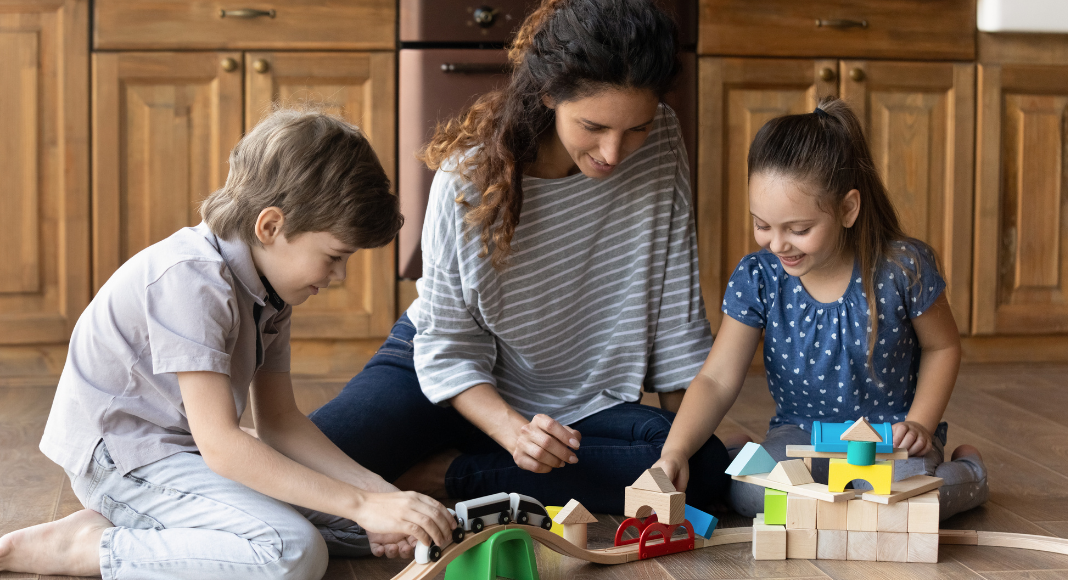 We’ve all been there.
We’ve all been there.
You’re listening to your kids play, and you can just feel it coming. It starts off as a whine or a frustrated response. They grump and poke at each other a little more, the volume of their voices rising and the words coming out sharper. You just know that the bickering will turn into a full-blown fight any minute.
Sometimes it can seem impossible to stop the escalation. The fight seems inevitable.
I always felt like either I had to go over and intervene in the bickering stage to head off the fight or intervene in the fighting stage to help the kids resolve things. Either way, I was going to have to be intervening.
And by the time I was intervening, after listening to their frustration swell, I was feeling frustrated too.
I hated this cycle. Surely there had to be a proactive way to deal with things. And even though my kids were turning three and five at the time, maybe there could even be a way for them to handle the majority of these scuffles independently.
Enter one simple question that has made our lives so much easier: “Are you still having fun?”
Here’s how it looks in action: My kids are wrestling around on the floor, tickling each other. They’re both laughing. They’re both having fun. Eventually, one of them decides they don’t want to be tickled anymore. The other one doesn’t get the memo.
Before, the one being tickled would get frustrated with the tickler, grumping at her to stop and then eventually yelling at her to stop. Not realizing the game had ended, the tickler would be upset and start grumping at the ticklee.
Of course, they wouldn’t calmly talk about this problem with each other. And why should they? They didn’t have any tools to know how to do it.
But now, when the tickler starts hearing grumping from the ticklee, she can ask, “Are you still having fun?” If her sister answers, “Yes,” then they keep playing. And if her sister answers “No,” they change the game. Simple. Easy. No escalation.
Now, full disclosure, in the beginning, most of the time, I was the one to interject the question, saying when I heard some frustration coming from them, “Please ask each other if you’re still having fun.” But the rest was up to them. They asked each other. They made a plan and solved the issue. And they’ve become good at it because they have that one simple question to use to get them started.
It’s helped them communicate. And it’s stopped so many fights.
There are tons of great positive parenting strategies out there like this that might be worth a try if you’re feeling stuck like I was. For example, you can model effective problem-solving by talking through a problem aloud to show kids how you think and act to solve it. You can create (or print off) a choice wheel like the one here that gives kids ideas of what to do when they encounter a problem, such as walking away or doing rock, paper, scissors to decide. For us, “Are you still having fun?” was simple and effective, so it’s become a staple in our home.
Do you know something magical about teaching my kids to use this question? I’ll hear the familiar grumblings of a fight brewing every now and then. And now, before I say anything, I’ll hear one of them ask, “Are you still having fun?” And they fix it.
On. Their. Own.
Is there anything better?
I love that they’re empowered to handle small issues that arise. I love that they’re learning to talk to each other about their feelings and what they’d like to do. I love that as they get older and practice communication skills like this repeatedly, it’s becoming more natural for them to do on their own. And, if I’m being completely honest here, I love that this can all be handled while I am sitting down and drinking my coffee—no intervening necessary.








